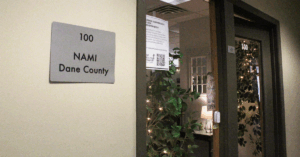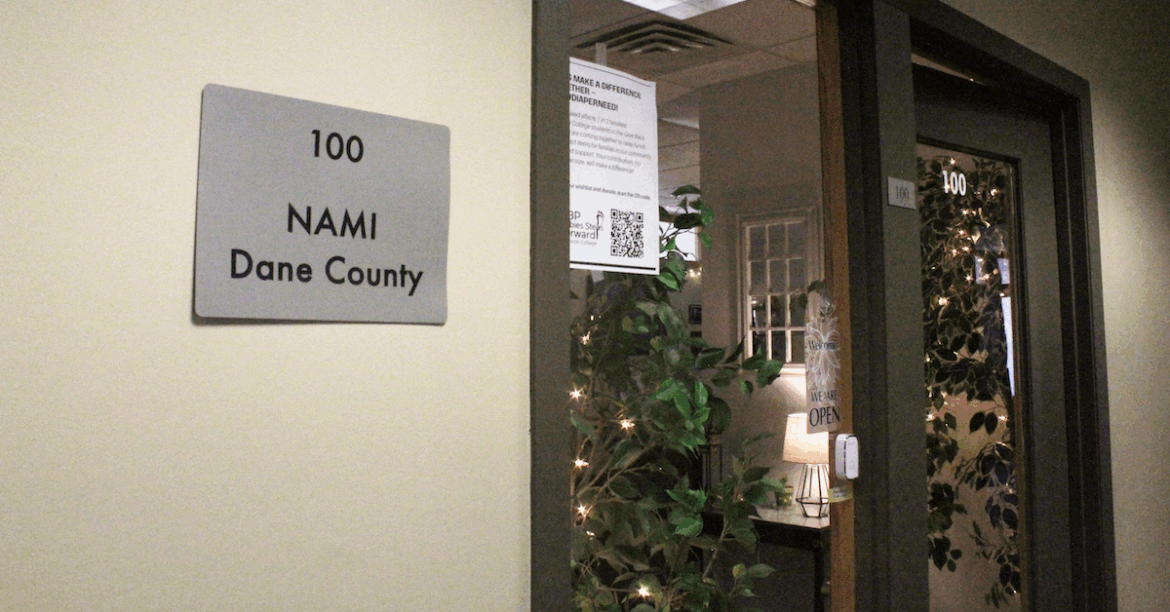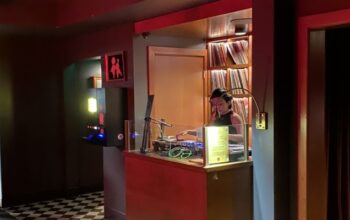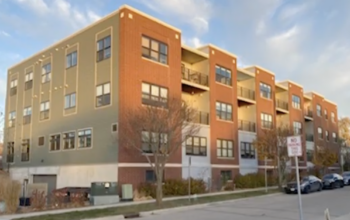In Wisconsin, the closure of vital mental health resources like Uplift Wisconsin has left a gap in support for those in need.
The helpline, or “warmline,” as it’s called, once connected thousands to critical assistance, but it was shut down in early 2025 after losing a $1 million grant — a stark reminder of the fragility of mental health funding. But amid this crisis, National Alliance on Mental Illness Dane County is stepping up, expanding its peer support services and advocating for systemic change to ensure no one is left behind.
The loss of Uplift Wisconsin is just one piece of a larger puzzle. Across the state, mental health organizations are grappling with dwindling funds, a crisis worsened by federal cuts, prompting Gov. Tony Evers to file a lawsuit against the termination of $11 billion in federal health funding. The suit emphasizes the urgency of sustaining programs like the 988 Suicide & Crisis Lifeline, which has fielded millions of calls nationwide since its 2005 launch.
In early April, federal Judge Mary McElroy ruled against the Trump administration’s efforts to cancel the funding, temporarily halting the cuts to $11 billion in public health funding, though the lawsuit remains ongoing.
For the local affiliate of the National Alliance on Mental Illness, known as NAMI Dane County, this moment has evoked a dual mission: to provide immediate, compassionate support while pushing for long-term solutions for Wisconsin residents.
Jamie Mulry, NAMI Dane County associate director, emphasized the organization’s commitment to bridging gaps in mental health services despite the funding challenges.
“We don’t have a disruption in our service at all, so it’s really just being able to communicate to community partners that may be having that happen, ‘You know, we are able to provide gap services in any way, shape or form that we can,” Mulry said. “We’re kind of in a unique position to be a connector of resources for both people and other organizations.”
At the core of its response is its peer support programs, a beacon for those navigating mental health challenges. Certified peer support specialists — individuals who’ve faced their own struggles with mental illness, substance use or trauma — are trained to offer guidance rooted in lived experience.
Mulry believes there is value in peer support services, as they allow individuals to share stories with someone who has faced similar challenges, unlike a therapist who may not have the same lived experience.“We want to make sure that people are getting the support when they need it ... we want to make it as easy and seamless as possible, to make sure that when someone’s ready, like they’re able to have that support,” she said.
The program recently welcomed a new team member who collaborates with NAMI Wisconsin to help run the Family-to-Family peer support program, which began in 2022, for parents of children with mental health or substance use issues.
Oleka Parker works as a certified peer support specialist for the Family-to-Family program, helping families navigate the mental health care system.
“A lot of times, we’re just helping people figure out what needs can be met to help their children or their family in the immediate time, and in the future,” Parker said.
Before becoming a peer support specialist, Parker joined the program as someone seeking support, and she said that being in the program opened her eyes to how important peer-to-peer support is in someone’s recovery.
NAMI Dane County’s offerings extend beyond one-on-one support to include seven specialized support groups. Hannah Puralewski, a peer support group facilitator, helps run NAMI Dane County’s Adult and LGBTQIA+ mental health support groups, creating a safe space for individuals to share their experiences and find community.
Puralewski says members of the support group will often share what they’re currently struggling with, allowing other attendees the opportunity to offer their support or ideas based on their own experiences. “It’s like crowdsourcing coping skills, basically,” Puralewski said. She described this type of exchange in which participants discuss practical tools they use to cope with mental health challenges as “group wisdom,” and added, “I feel like I learn something new with every session.”
Meanwhile, Hannah Winter, another peer support group facilitator, hosts the virtual Women’s Mental Health Support Group, which offers a space for women to discuss mental health challenges specific to their experiences. “These aren’t things that you talk about in your day-to-day life, and sometimes it is easier to discuss things with people who are kind of strangers to you, but you do have that common ground,” Winter said.
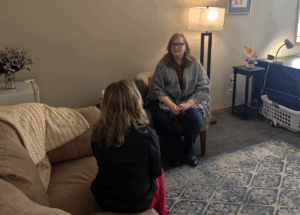
Advocacy is the other half of the equation. With Uplift Wisconsin gone, NAMI Dane County is doubling down on calls to secure sustained funding for the 988 Suicide & Crisis Lifeline.
The 988 lifeline, hailed by NAMI as a game-changer, is at risk without stable funding — a gap NAMI Dane County aims to bridge through public policy work.
“I don’t think people really understand what a world without 988 looks like, or what the world without a warmline like Uplift Wisconsin looks like — that looks like less people being served and more people having mental health crises that are not treated, or something worse happening,” Mulry said.
These efforts coincide with Evers’ lawsuit, which targets cuts that threaten mental health infrastructure across the state, including Wisconsin’s rural counties, where services are already scarce.
NAMI Wisconsin hosts a statewide virtual support network in collaboration with NAMI Dane County to connect individuals in underserved areas with critical mental health resources.
“We want to make sure that we’re serving everybody, particularly in mental health resource deserts” where “we’re able to use technology to our favor, especially for people in areas that don’t have access,” Mulry said.
“Our Better Together group is virtual, so some people who are in a mental health resource desert can still access support at least once a month,” she added.
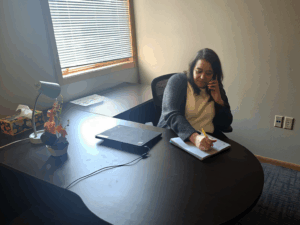
The human impact also shines through in stories like that of Jordan Love, the Green Bay Packers quarterback, whose father, a police officer, took his life when Love was 14 years old; Love recently spoke at a statewide peer support conference, amplifying the message that mental health matters. For NAMI Dane County, it’s a sentiment that drives its work every day to remain a vital resource and strong advocate for those who are struggling.
“At the end of the day, that’s the message — you’re not alone,” Mulry said, echoing a truth echoed by the lived experiences of those impacted by NAMI’s outreach and support groups.
The organization has now settled into its new office on the west side of Madison. For those seeking help or wanting to get involved, you can find more information at namidanecounty.org/support.
